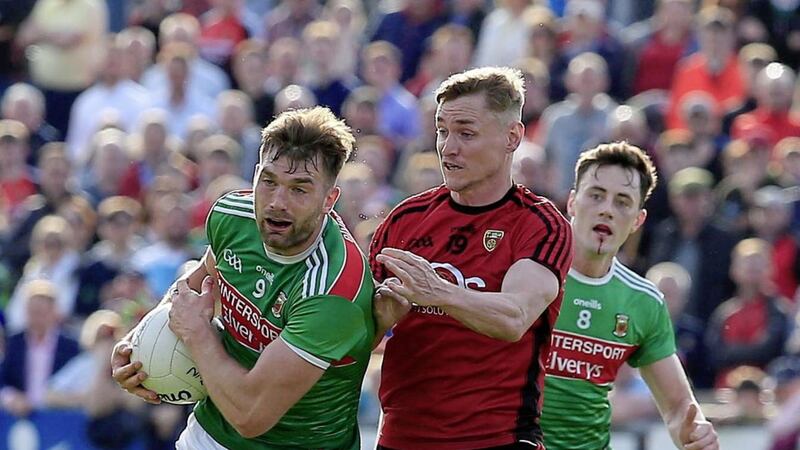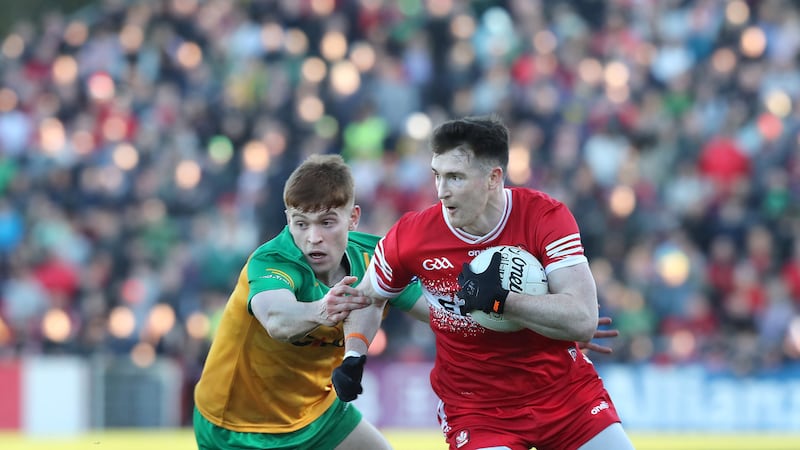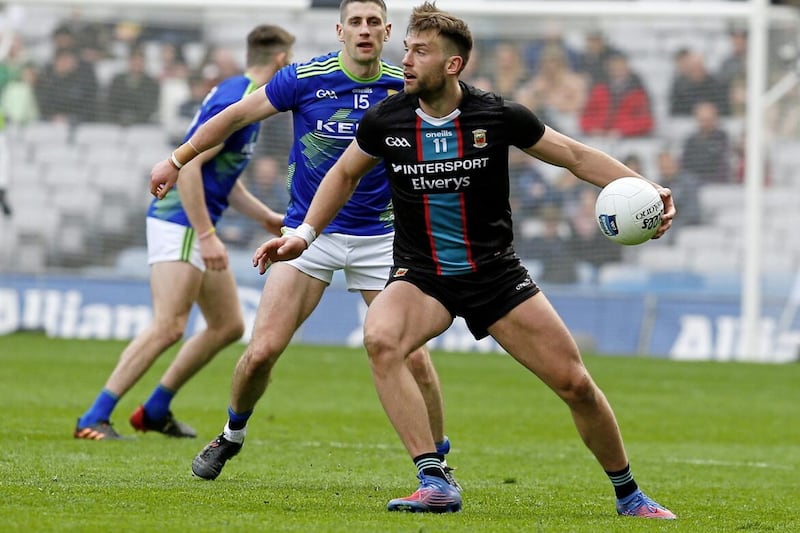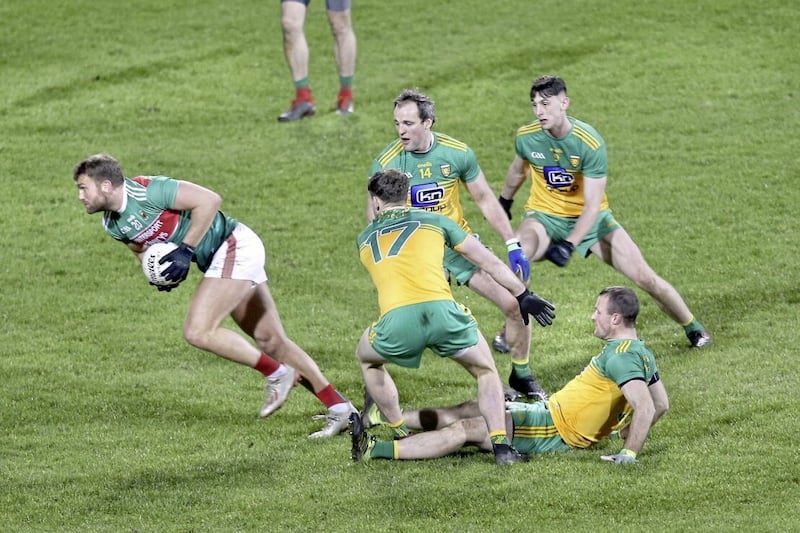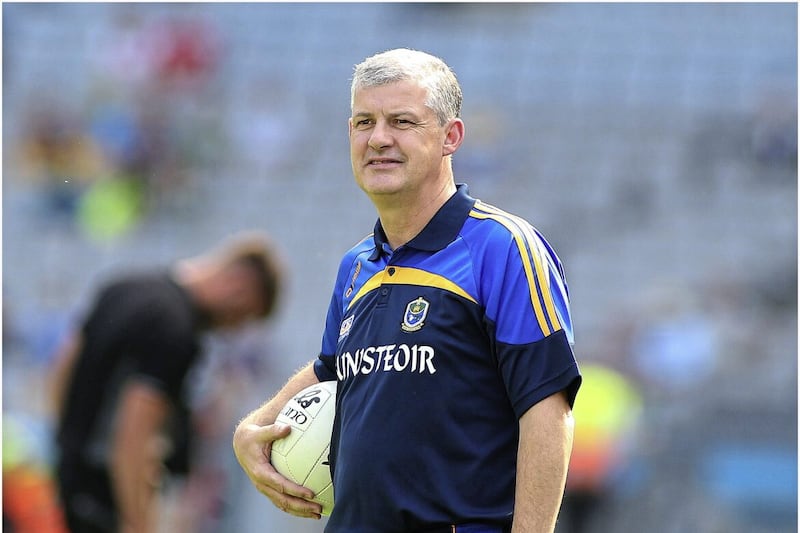THERE has been no push towards pay-for-play and it’s not something GAA players want to see happen, according to Mayo’s Aidan O’Shea.
Earlier this month Ulster Council secretary Brian McAvoy claimed the financial fall-out from the Covid-19 pandemic proved that the Association couldn’t sustain “any sort of professional body”.
“The one thing we have in our favour is that while we’ll all take a massive hit, we’re an amateur organisation. That is crucial at this stage,” he said.
“If this has taught us anything, it has totally put to bed any argument that the GAA could sustain any sort of a professional body. That argument’s dead; it always was dead, but for those that needed convincing, they don’t need convincing now.
“If they do they’re living in cloud cuckoo land.”
When asked about those comments, at a time when the profile of the inter-county game has never been so high, the Breaffy man insisted such status was not the objective.
However, he did question whether the spiralling costs of county set-ups were being driven by the demand for success from supporters “and everybody else out there.”
“I never stated that semi-professional or professional was something that I was looking to happen,” he said.
“I think the players have been strong, through the GPA, we've always said that it's not something that we wanted to happen. I think you might be referring to the cost of running teams.
“I'm a bit conflicted on this one; I understand both sides of the argument. I remember a Kieran McGeeney clip on professionalism on YouTube and people asking him about professionalism and who is driving professionalism. I think he referenced DJ Carey on the clip and it still stands - who’s driving professionalism?
“Is it really the players and the county boards, or is the expectation from spectators and everybody else out there? Supporters want their teams to do the best, they want to see them competing and that space is expensive.
“I find it hard for the players in this argument because we’re not asking for professionalism but we want to train and work as best we can to be the best we can, as an individual and as a team, and to provide the best product on the football pitch.
“It’s a difficult one. I understand some of the costs for some of the counties are crazy, maybe there should be controls around that, I don’t know. High performance sport is expensive, and that’s what we’re in.”
Back in 2018 a study from the Economic and Social Research Institute found that players can spend up to 31 hours per week on their senior inter-county commitments, often compromising on personal relationships and general downtime as a result.
The pandemic has offered a chance for many inside the sporting world to reflect, and while O’Shea admits it may be time to try and bring that 31 hour total down, putting that into practice could be a different proposition.
“Stories I’m hearing of what some teams are doing, especially from November through to January… I know we don’t do it and I’m sure Dublin or Kerry don’t do it. It seems to be that middle ground where they’re trying to catch up or have a big League campaign and spending an awful lot of time together.
“I think we’re smart enough with our time in Mayo. We would’ve been using Zoom before so we don’t have to come together. In terms of training, you’re there at six, you’re getting home at 10 – that’s not going to change. That’s just the length of time a training session takes now. I don’t see that changing.
“The time around it, a lot of it is your own preparation, whether it’s your diet or recovery. There’s probably an argument to say 31 hours is too long, I’ve seen people quoted saying it is and maybe it is.
“Maybe that number could be revised down - how you manage it though I really don’t know because it’s going to change from manager to manager, county to county.”
